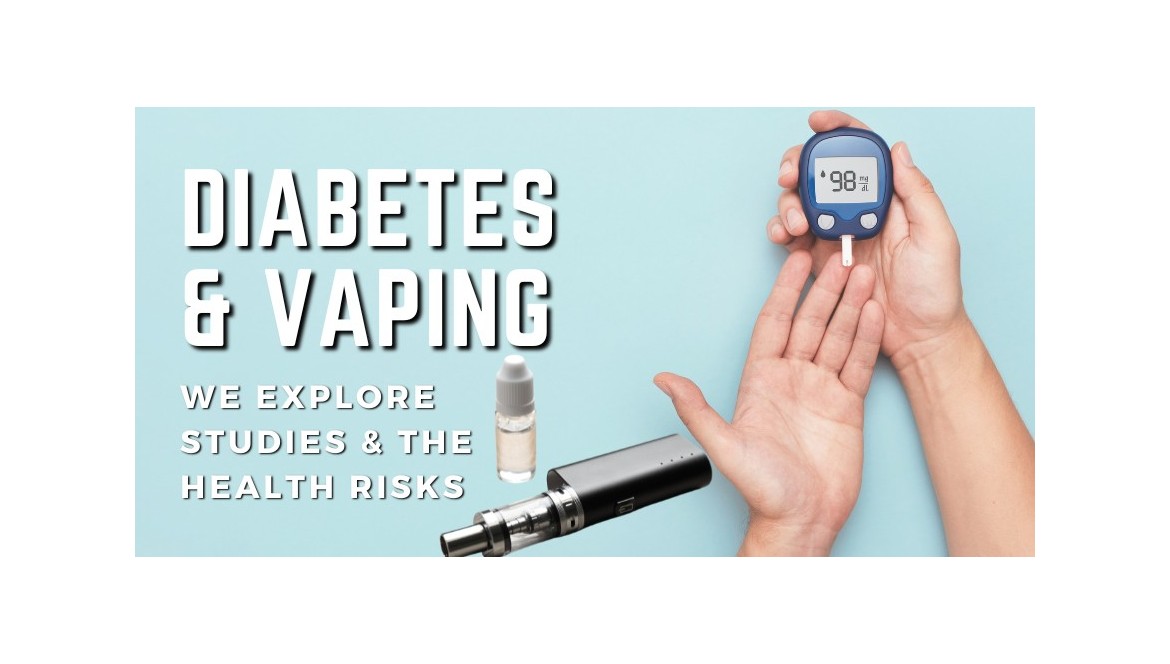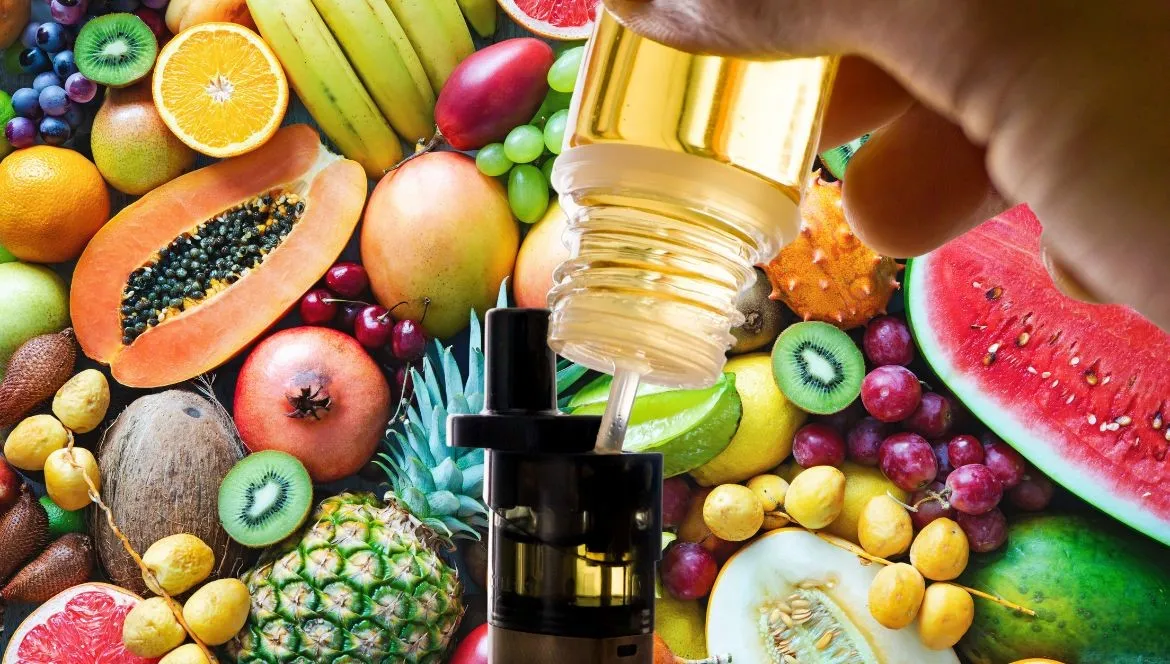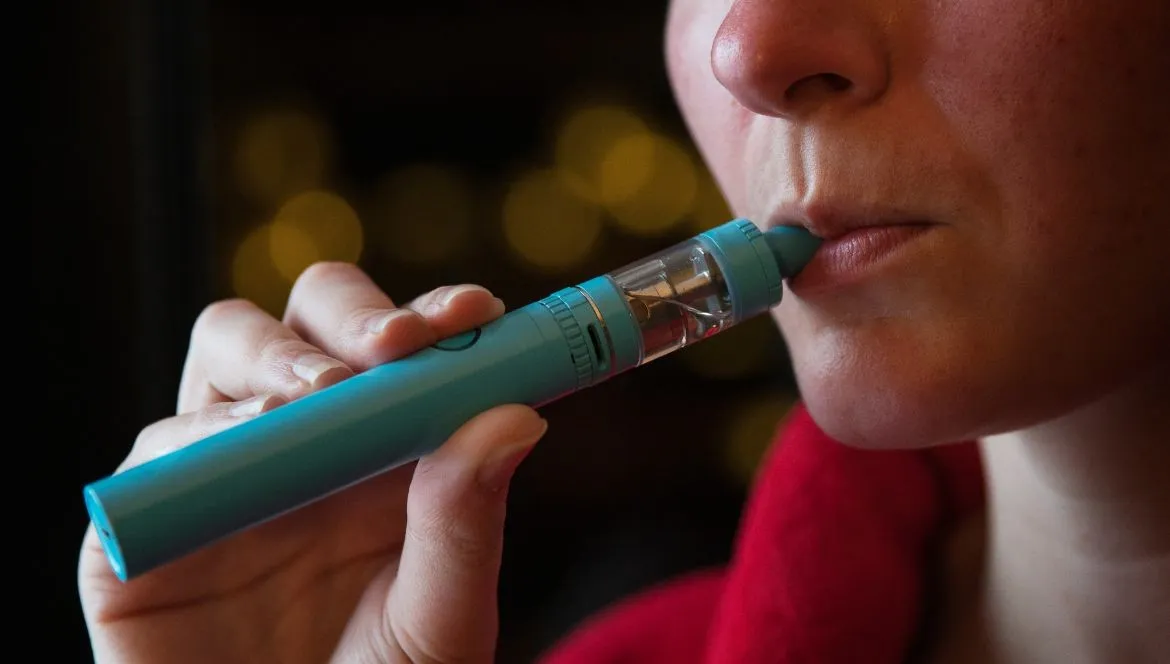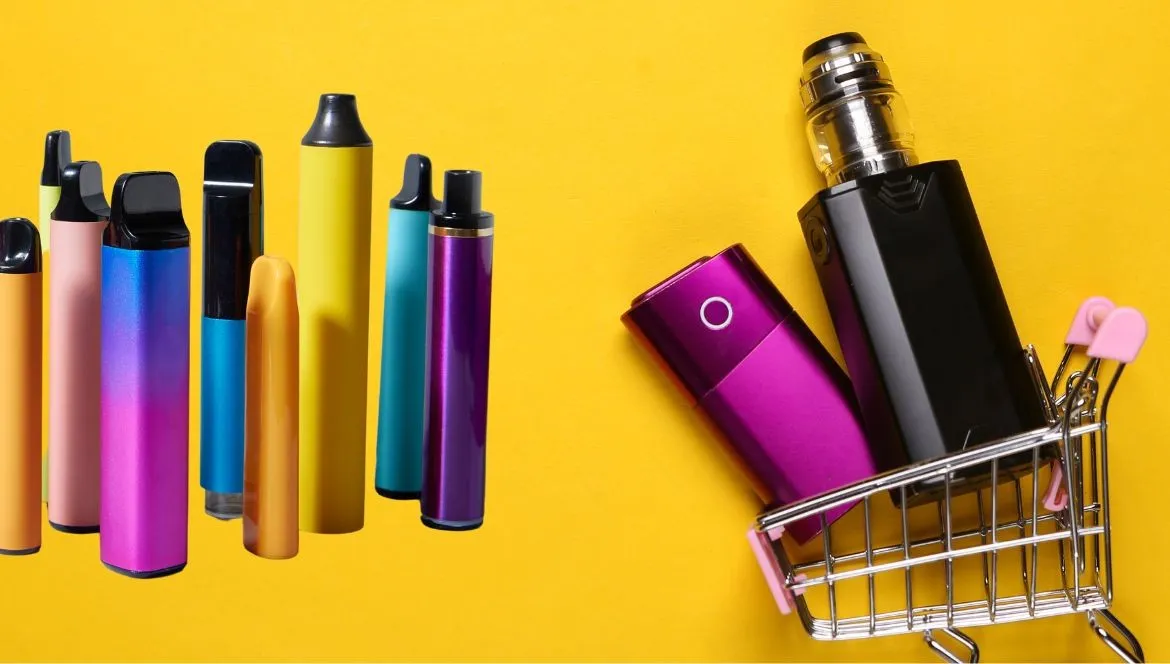Vaping and Diabetes - We explore the Health Risks

So you have type 1 or type 2 diabetes, can you vape and if so what's recommended to not increase health risks with your conditon? We explore what the latest studies suggest.
With the rise in popularity of vaping, many people, including those with diabetes, are questioning whether it is a safer alternative to smoking and what implications it may have on their health. Diabetes management requires careful consideration of various lifestyle choices, including the decision to vape. This blog post explores whether a person with diabetes can vape and examines studies that suggest nicotine has minimal effects on insulin levels.
Diabetes and Its Management
Diabetes is a chronic condition characterised by elevated blood sugar levels due to the body’s inability to produce or effectively use insulin. There are two primary types: Type 1 diabetes, where the pancreas produces little or no insulin, and Type 2 diabetes, which involves insulin resistance and a gradual decline in insulin production. Proper management includes maintaining stable blood glucose levels through diet, exercise, medication, and regular monitoring.
Understanding Vaping
Vaping involves inhaling vapour produced by an electronic cigarette (e-cigarette) or other vaping device. The liquid in these devices, known as e-liquid, typically contains nicotine, flavourings, and other chemicals. While vaping eliminates many harmful compounds found in traditional cigarettes, the impact of its ingredients, particularly nicotine, remains a concern for individuals with diabetes.
Nicotine and Insulin Levels: What Does the Research Say?
Nicotine is the primary addictive component in both traditional cigarettes and most e-liquids. While it is known to have several effects on the body, recent studies indicate that its impact on insulin levels may be minimal. Let's delve into some of the key findings:
Nicotine and Insulin Sensitivity:
- A study published in the Journal of Clinical Endocrinology & Metabolism investigated the effects of nicotine on insulin sensitivity. The research indicated that while nicotine can cause acute insulin resistance immediately after exposure, these effects are transient and do not lead to long-term insulin resistance. This suggests that occasional vaping might not significantly impact insulin sensitivity in the long run.
Blood Glucose Levels:
- Another study in the Diabetes Care journal explored the effects of nicotine on blood glucose levels. The results showed that while there might be a slight elevation in blood sugar levels immediately after nicotine consumption, these levels normalised within a short period. This finding is crucial for people with diabetes, as it suggests that the acute effects of nicotine on blood sugar are minimal and temporary.
Chronic Use and Insulin Production:
- Research in the Journal of Diabetes Research examined the long-term effects of nicotine on insulin production in the pancreas. The study found no significant changes in insulin production among regular nicotine users compared to non-users. This indicates that chronic nicotine use may not adversely affect the pancreas’s ability to produce insulin.
Can a Person with Diabetes Vape?
Based on current research, it appears that the effects of nicotine on insulin levels and overall diabetes management might be less severe than previously thought. However, this does not mean that vaping is entirely without risk. Here are some considerations for people with diabetes who are contemplating vaping:
1. Choose Nicotine-Free Options:
- If you decide to vape, opting for nicotine-free e-liquids can help eliminate the risks associated with nicotine. This way, you can enjoy the act of vaping without worrying about potential impacts on your insulin levels.
2. Monitor Blood Sugar Levels:
- Regular monitoring of blood sugar levels is crucial for people with diabetes who vape. Even if the effects of nicotine are minimal, individual responses can vary, and staying vigilant helps ensure that any changes are promptly addressed.
3. Consult Healthcare Providers:
- Before starting or continuing vaping, it is essential to consult with healthcare professionals. They can provide personalised advice based on your medical history and current diabetes management plan.
4. Maintain a Healthy Lifestyle:
- Vaping should not replace healthy lifestyle choices. Balanced diet, regular exercise, and adherence to prescribed medications are fundamental aspects of diabetes management that should be maintained.
Conclusion
While vaping might be considered a safer alternative to smoking traditional cigarettes, people with diabetes must carefully evaluate its potential impact on their health. Recent studies suggest that nicotine has minimal effects on insulin levels and blood glucose regulation, which is encouraging news for those considering vaping. However, it is essential to remember that vaping is not entirely risk-free, and the long-term effects are still not fully understood.
For individuals with diabetes who choose to vape, selecting nicotine-free e-liquids, closely monitoring blood sugar levels, consulting healthcare providers, and maintaining a healthy lifestyle are crucial steps to ensure effective diabetes management. As always, prioritising overall health and well-being through informed decisions and professional medical guidance remains paramount.
In summary, while current research indicates that nicotine may have minimal effects on insulin levels, people with diabetes should approach vaping with caution and make informed choices to safeguard their health.
In Same Category
- The False Economy of Fake Atomisers, Coils, and Pods
- The Dangers of Illegal, Unregulated Vaping Products: Why You Should Choose Reputable Stores
- Popcorn Lung from Vaping: Why It Hasn’t and Won’t Be a Concern in the UK
- The Cheapest Online Vape Store for Shortfill E-Liquid
- Quitting Smoking - Cold Turkey Vs Nicotine Patches Vs Vaping









Comments
No comment at this time!
Leave your comment